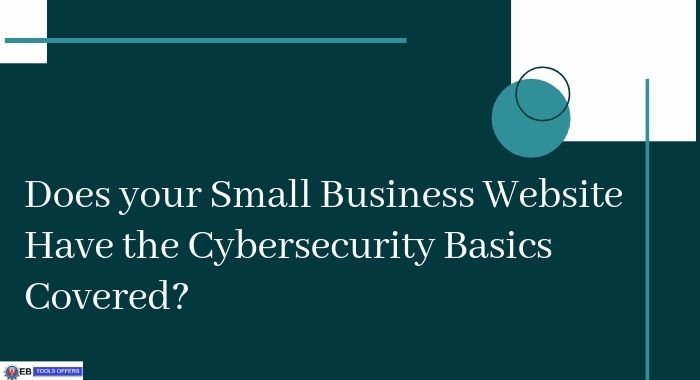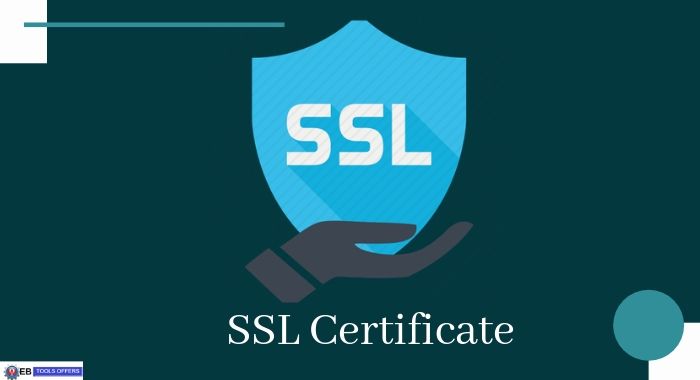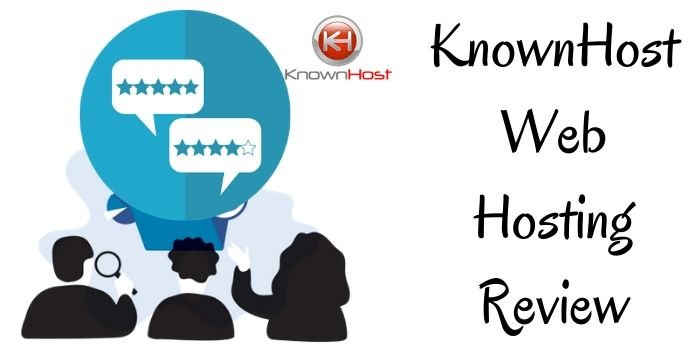Does your Small Business Website Have the Cybersecurity Basics Covered?

Cyber Security is recommended for a business website. If you are the owner of a Business Website then it is very important to cover the Cyber Security Basics. Your e-commerce website contains lots of data and confidential information regarding your business and to protect that data and information from Cyber threats is your duty. To do so, you need to check that does your small business Website has the Cybersecurity Basics Covered? This will prevent you from viruses and other Internet threats that can harm your website. Let’s talk about the points which you have to cover for your small business Cyber Security.
Domain Privacy

To cover the Cyber Security basics, the first and foremost step is to purchase Domain Privacy Protection for your Small Business website. Once you have purchased the domain name then the contact details of the domain owner will pass to the ICANN WHOIS directory which publishes it publicly. After publishing your contact details, anyone (Spammers, Hackers, Cyber thieves) can get your personal information. To protect your confidential details, you need to purchase Domain Privacy. It will shield your identity like your name, email, mailing address, and phone number from the people ( Spammers, Hackers, Cyber thieves) who look up your site on the WHOIS database. If you want to know more about Domain Privacy then check out our blog: What is Domain Privacy & Why do you need it?
SSL Certificate

Get the use of an SSL certificate to improve the security of your eCommerce, Business, and any website where the user uses their personal data or does the transaction. SSL stands for Secure Socket Layer which secures the communication between the browser and the server. It helps to keep the Internet connection secure and also protects confidential information to get leaked. SSL certificate ensures the visitors that any data they are sharing are encrypted, so the hackers will not be able to track the transaction.
According to Google Algorithm SSL becomes mandatory for every website to rank up in search engines. If your website is not having the SSL certificate then the browser will show their website with the warning “Unsafe”. Google search engine gives rise to the website which has an SSL certificate because it ensures the safety and security of the visitors of your website.
Automatic Site Backup

If your business gets hacked or any website or theme updates crash your website data then you need a way to get up again. Automatic Site Backup will save your files and do help you to restore your website when any tragedy happens. Make sure that you are dealing with a company that provides the daily backup so that you will not have to go back to an out-of-date site.
Automatic Malware Scans and Removal

A virus can not harm only your website but also ruin your overall performance. Nowadays malware attacks are increasing day by day. They steal data and let the Cyber Criminals take over your sites. An automatic malware Scan and removal will help you to scan the viruses and malware and keep your website protected. As a small business owner, you need to have Automatic Malware Scans and Removal tool to protect your business. There are many Antivirus tools Ccleaner, Kaspersky, Panda Security, etc. by which you can easily scan your website and remove the Malware and Viruses from your website.
Secure Passwords

Having a secure and unique password is one of the simplest ways to protect your website from Cyber Threats. This will prevent hackers to guess your website password. Nowadays hackers and spammers are more likely to guess passwords and can easily hack the website. Make sure that your business website is having a unique and secure password so that no one can easily guess it.
Site Login Protection

There are the login forms on your site that make the visitors log in to their account by completing the sign-in process. These forms have some weak points which will make the Cyber Criminals hacked the site easily. If they find a way to in then they can release malware, ransomware, to break your business. To prevent your small business websites from malware and botnet attacks you can find a new way. You can add some layers of protection while sign in. For example:
- You can add the limits of login attempts. A user can log in only three times in one attempt. This will help to prevent the bots from your website.
- The second option is to provide the reCaptcha to your registrants so that they can prove that they are not a robot and sign in easily.
Conclusion
As you can see the number of cyber threats is increasing day-by-day and your business websites are having lots of important data and confidential information that can get leaked or hacked by Cyber Criminals. To prevent the hacking and leakage of data you have to cover all the Cyber Security basics. This will help you to prevent your website from malware, viruses, and Cyber Criminals. Now that you know the basics of Cyber Security, Are you ready to launch your small business website? Or if you are already running a business website then have you covered all these points? If you have not covered any of the above points and faced any cyber threats then Do share your experience and suggestions in the Comments.


















